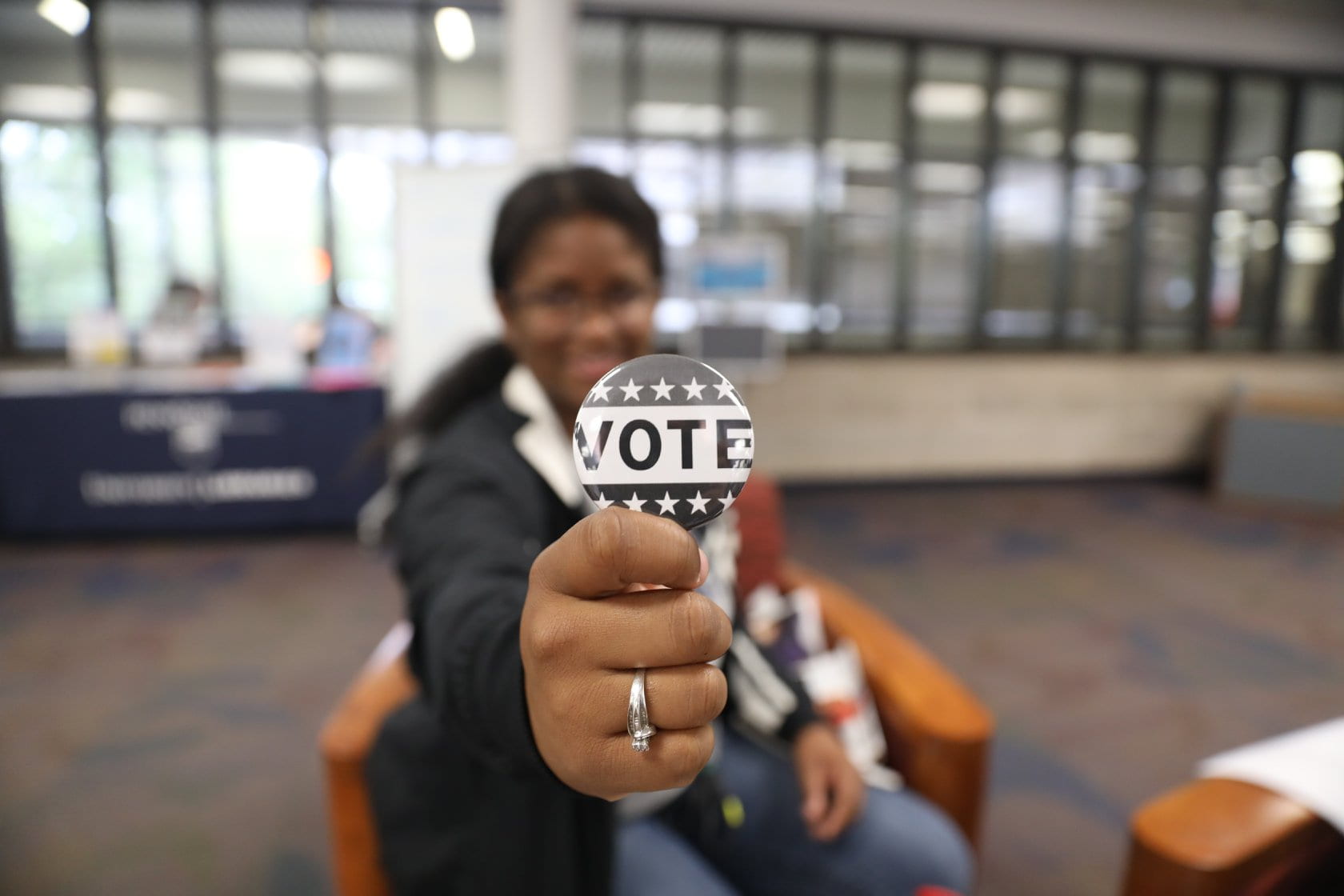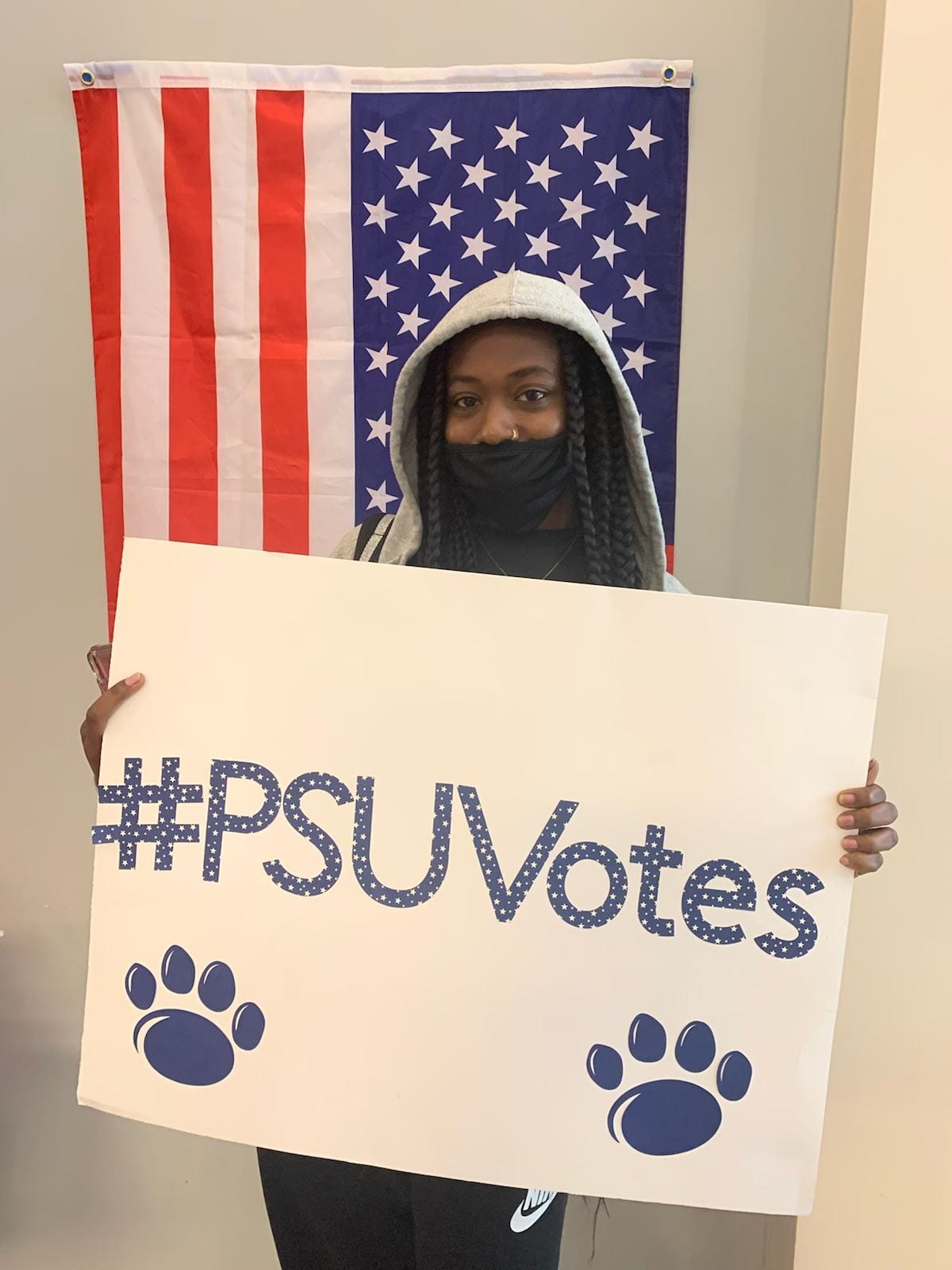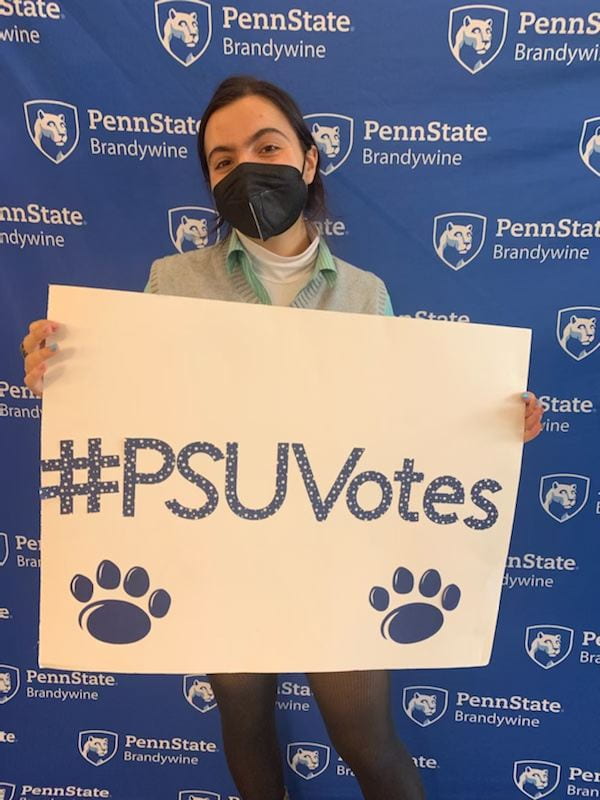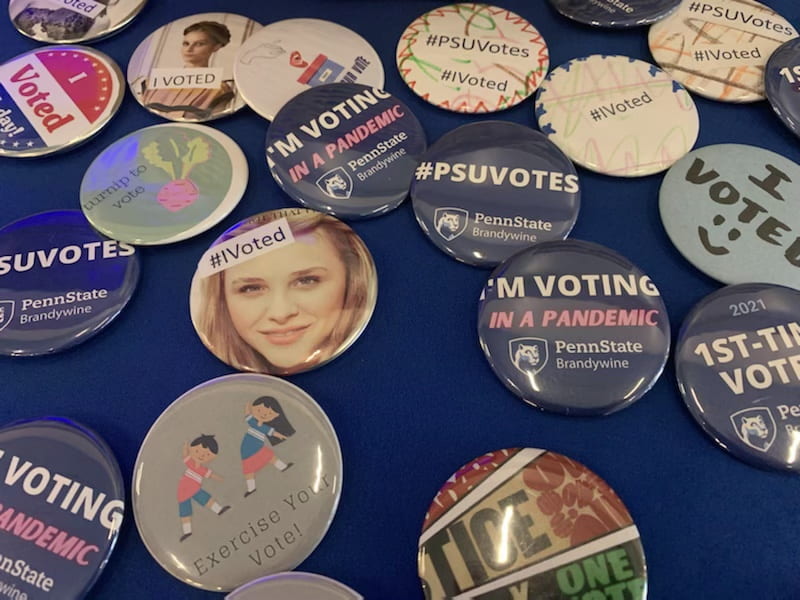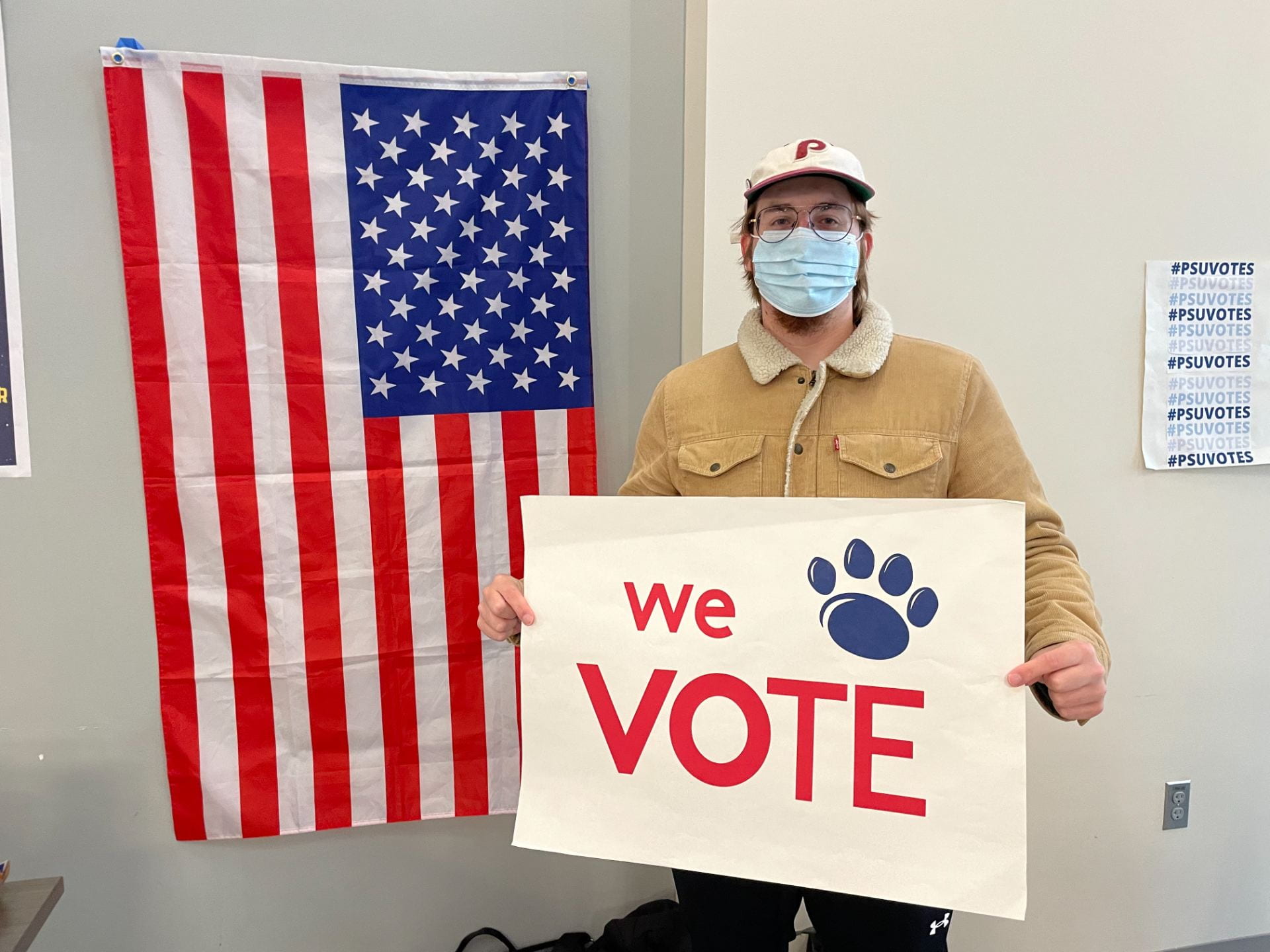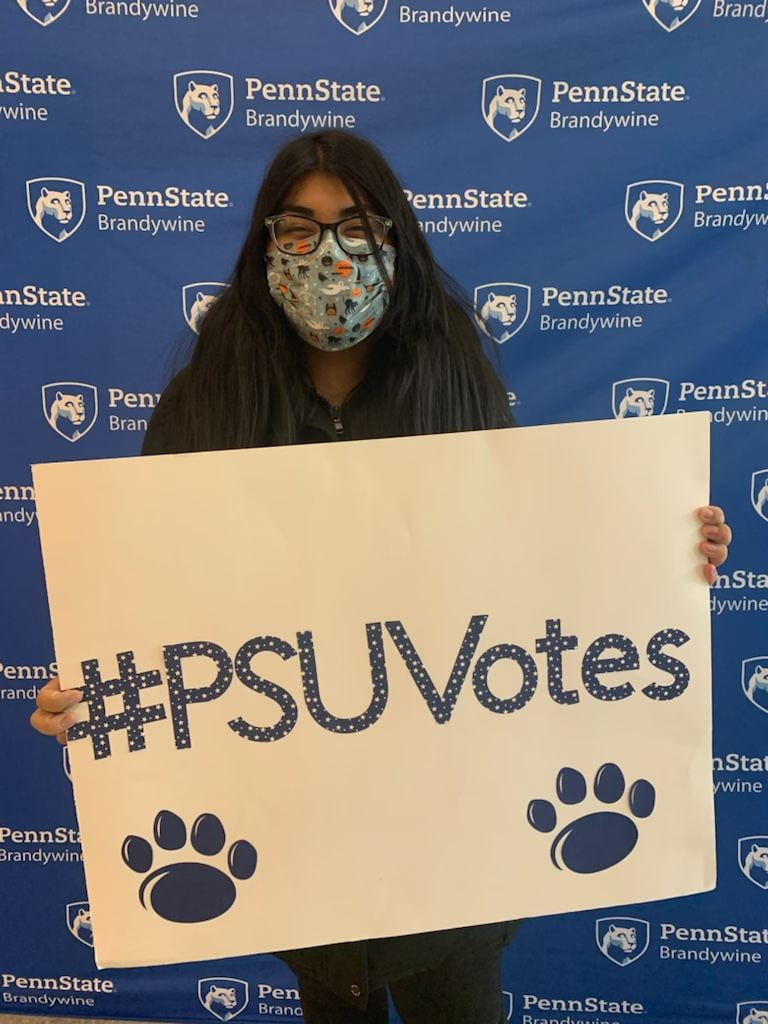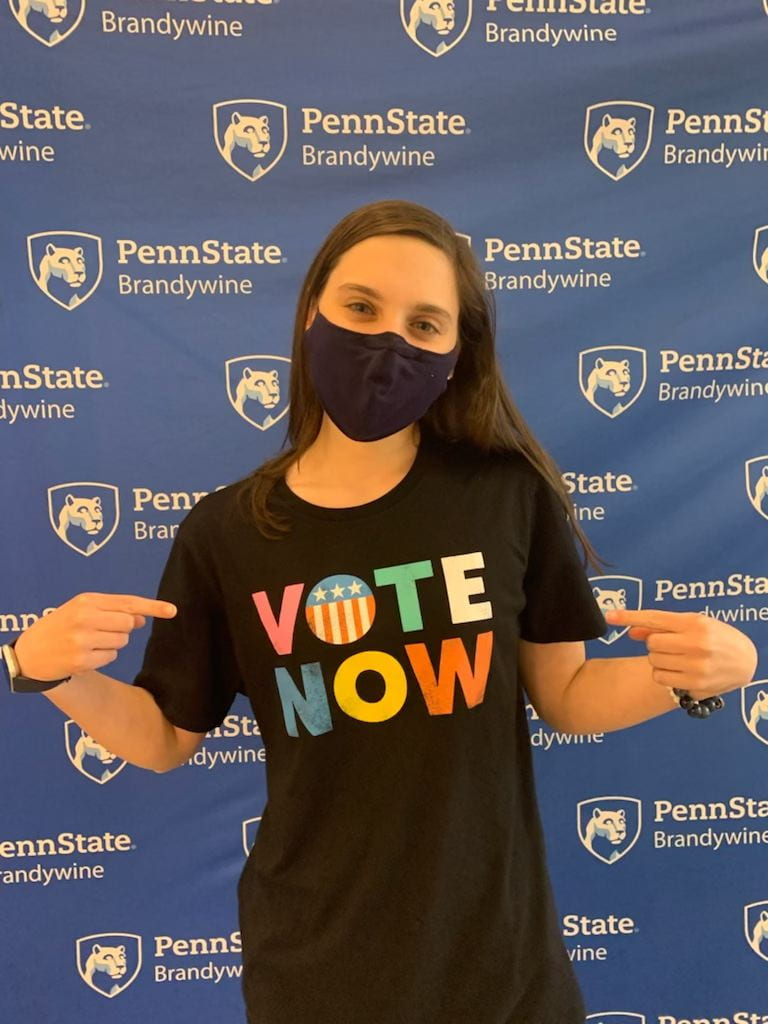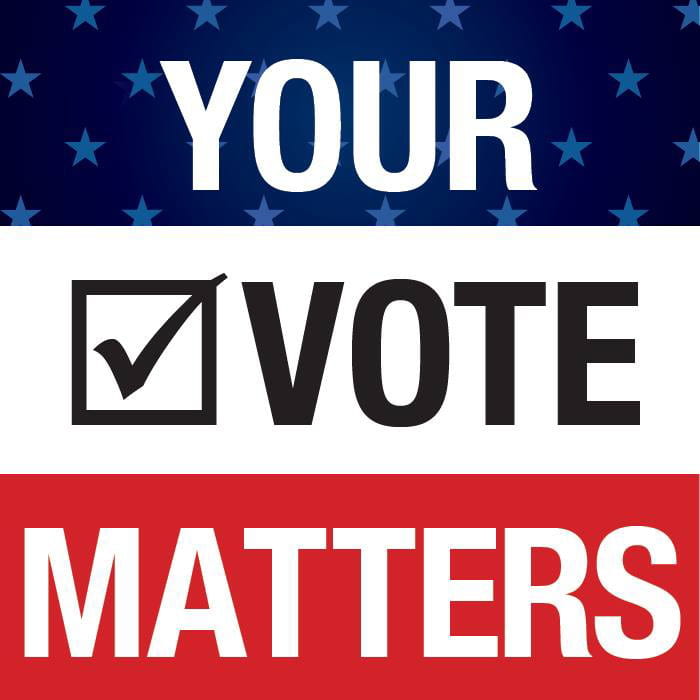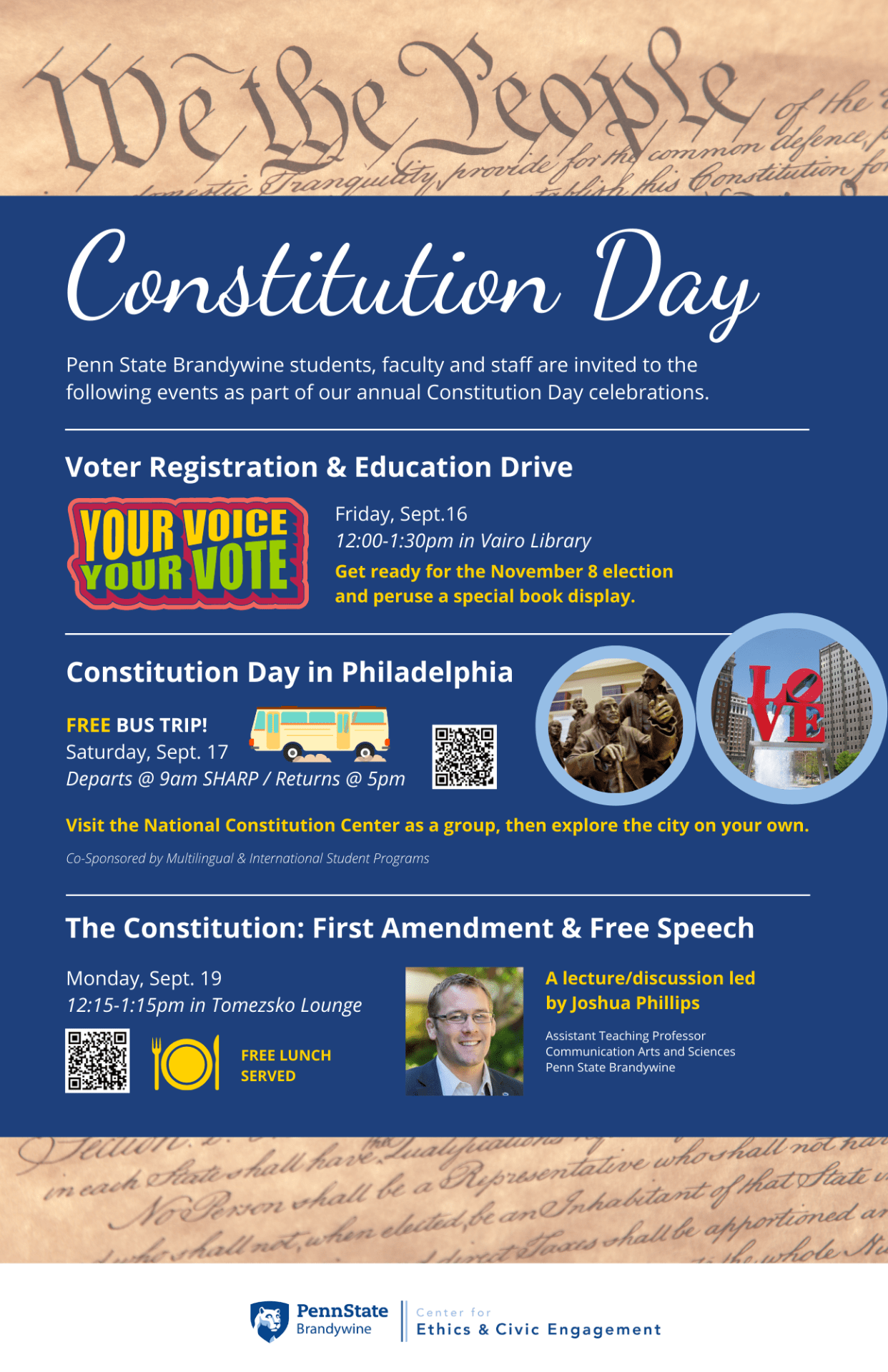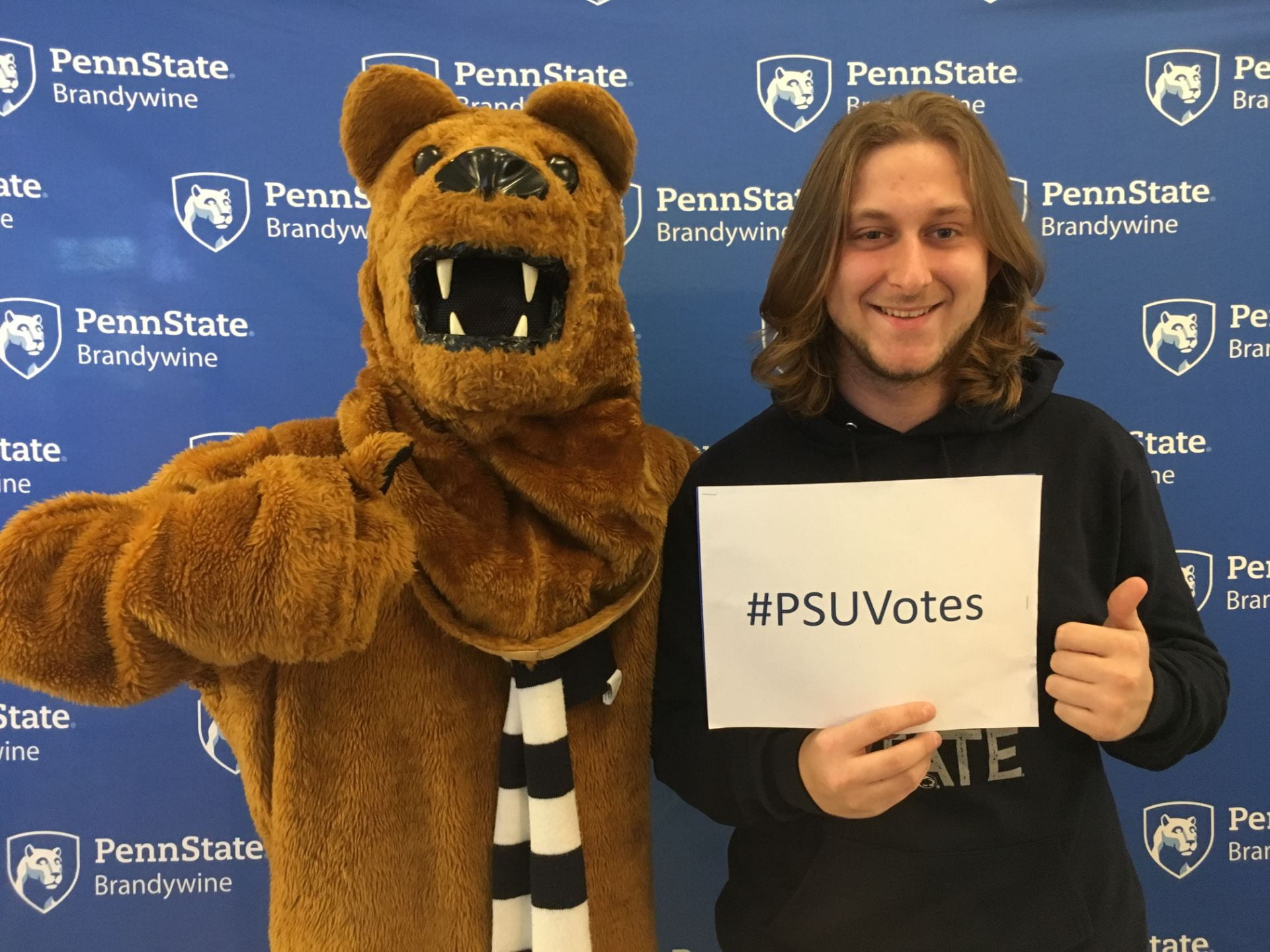Voter Education and Engagement
Our mission at the Center for Social Impact is to help students become active and aware citizens. An important and foundational aspect of that involves becoming politically engaged, which requires an understanding of what the issues are, who the candidates are, what they stand for, and how to properly hold them accountable. The Center uses the Campus Election Engagement Project, a national nonpartisan project that helps administrators, faculty, staff, and student leaders at America’s colleges and universities engage students in federal, state, and local elections, as a pivotal resource in creating materials and engagement campaigns involving voter education and engagement.
At Penn State Brandywine, we have implemented a number of different campaigns and activities in relation to voter registration and education. Some of these include working with marketing students to create a 2020 voter registration campaign, helping students and faculty form a “Young Democrats Club” on campus, recording voter PSAs with Brandywine students and staff that were digitally distributed on campus, hosting frequent voter registration drives in partnership with Vairo Library, Orchard Hall, and Student Affairs, hosting a Voting Rights Election Quiz Night with Vairo Library, and creating an Election Bulletin Board in the Student Union Building.
Student Voter Registration
At Penn State Brandywine, students have the opportunity to register to vote while on campus. In order to register, you must have the last four digits of your social security number and a state drivers license or identification card. Click here to register to vote in Pennsylvania. If you have any questions, please email Vippy Yee at vxy3@psu.edu.
Municipal Primary: May 16, 2023
For the most up to date information, please visit votes.pa.gov.
Make sure you are registered to vote!
The next upcoming election is the Municipal Primary on May 16, 2023. Learn about primary elections here.
- Polls will be open on election day from 7:00 A.M. – 8:00 P.M.
- Registering to vote for the first time? Click here to complete your voter registration application by May 1, 2023.
- Last day to request a mail-in or absentee ballot is May 9, 2023.
- Already registered? Check on your registration status. Make sure your current address is the one listed for you.
If you have any questions about the process, please email Dr. Christine Brown at cmf22@psu.edu for assistance.
What’s on your ballot?
To see EXACTLY what will be on the ballot in your voting district, we strongly encourage you to visit the League of Women Voters’ comprehensive vote411.org site.
Mail-in ballots available to all
ANY registered PA voter may request a ballot through October 26, 2021, and submit that ballot through the U.S. mail or via designated dropbox. No reason required.
Online application for mail-in ballot
Online applications are strongly encouraged. (Handwriting is often hard to decipher, so it takes 3-4 times longer to process handwritten applications sent by mail.)
- VotesPA provides a step-by-step guide to applying electronically for a mail-in ballot.
- The step-by-step guide will take you to the Ballot Request Application page. From there, you access the online application by clicking on the BLUE RECTANGLE that says “Begin your application.” It’s just below the “I’m not a robot” box.
- To complete the electronic application, you must be able to provide your valid PA Driver’s License or PennDot number.
Paper application for mail-in ballot
If you do not have a valid PA driver’s license or PennDot number, you may submit a paper application via the U.S. mail.
- VotesPA provides a step-by-step guide to downloading the paper application for a mail-in ballot.
- You will provide your Social Security number in lieu of a PA driver’s license or PennDOT number.
- You will print off and fill in the application for a paper mail-in ballot and mail it to your designated address. Tip: Scroll to page 2 for some good voter info.
Who should apply for an absentee ballot?
The absentee ballot is specifically for those whose health prevents them from going to the polls or those who will not be in town on election day. This includes members of the military.
- VotesPA provides a rule-by-rule guide to qualifications for absentee voting plus a step-by-step guide to applying for an absentee ballot.
- You may apply for an absentee ballot electronically as long as you have a Driver’s License or PennDOT ID number. Otherwise, you must download and mail a paper application for an absentee ballot.
Annual request to vote from home is easy
Whether you apply for a mail-in ballot or an absentee ballot, whether online or on paper, your Ballot Request Application will let you make an “annual mail-in ballot request.” That is a request to automatically get ballots for the rest of the year, and NOT have to submit a ballot request application for each election!
No take-backs
If you submit your ballot by mail or early in person, you may not change your vote on election day. The vote you submit early is absolutely final.
Mail-in ballot not mailed?
If you do not return your voted mail-in ballot by the deadline and you want to vote in person, you have two options:
- Bring your ballot and the envelope with the voter’s declaration to your polling place and turn it in so you can vote on your county’s voting system.
- If you don’t have your ballot, you can vote by provisional ballot at your polling place. VotesPA gives an explanation of that process.
Don’t vote “naked”!
Voter Education Resources
2022 Constitution Day
In collaboration with Brandywine’s Vairo Library and Multilingual & International Student Programs, the Center for Social Impact hosts events, activities, and campaigns for Constitution Day, celebrated every year on September 17. This year we are offering three special events.
Mock Nominating Convention
The Center co-sponsored the Penn State Brandywine 2020 Mock Nominating Convention — a campus-wide research project with the goal of predicting who the 2020 Democratic Presidential Nominee will be. Delegate voting was held January 20-24th, 2020, to simulate the state primaries. As the beginning of a new campus tradition, the convention was held on February 6, 2020, and included campus performances, invited speakers, and the delegate nominating convention. Our convention concluded with the prediction that Joe Biden would be the 2020 Democratic Presidential Nominee. For more information or to learn how to get involved in preparing for the 2024 Mock Convention, please contact Vippy Yee.
@PSUMockCon Benefits
- Learn parliamentary procedure
- Gain research experience
- Develop civic and political capacity
- Increase campus pride
- Create opportunities for leadership and fundraising experience
- Develop friendships & have fun
Congresswoman Mary Gay Scanlon (PA-5), student Alyssa Plotnick and Associate Professor Julie Gallagher at the 2020 Mock Convention awards luncheon
Key Faculty
Julie Gallagher, jag63@psu.edu.
Kristen Goessling, kpg5193@psu.edu.
Lynn Hartle, lch1@psu.edu.
Marinda K. Harrell-Levy, mkh23@psu.edu.
Stephen Cimbala, sjc2@psu.edu.
Vippy Yee, vxy3@psu.edu.
Clubs and Committees
Center for Social Impact. The Center develops pathways for students to become active citizens and engage with their local communities. The Center holds events such as MLK Day of Celebration, Social Justice Fair, voter registration and awareness drives, and more. The Center also provides students with resources and outlets for volunteer and part-time work, engagement opportunities in the community and on campus, and more. Director: Vippy Yee
Civic and Community Engagement Club. This club is for any individuals who are inspired in giving back to the community through volunteer work. The club is meant to encourage students to serve humanity without financial reward, to develop a stronger understanding of humanitarian needs, and to promote the practice of good citizenship and right conduct. Club Contact: Brisa Luzzi Castro, bql5367@psu.edu
Relevant Courses
*Visit LionPath Class Search if you’re interested in enrolling in any of these classes. Make sure to select “Brandywine” as your campus, and select the specific term/semester you are enrolling for. Some courses are only offered in the fall, while some are only offered in the spring.
AMST 100- Introduction to American Studies: This course examines what “America” means and what it means to be “American.” These issues will be examined from a variety of perspectives: literature, history, politics, film, race, gender, and geography.
AMST 105- American Popular Culture and Folklife: This course focuses on a critical examination of a variety of popular and folk cultures in order to produce an enriched understanding of America and its inhabitants. To meet this goal, popular and folk cultures will be examined from a variety of perspectives, including literature, history, politics, film, race, gender, class, and geography.
AMST 447- Recent American History: This course covers the history of the United States from the end of World War II to the present. Topics include but are not limited to the Marshall Plan, the Cold War, the Korean War, the rise of television, atomic power, the Eisenhower presidency, the Civil Rights and Women’s Movements, the Vietnam War and protests, the space race, Watergate, the Reagan presidency, the two Iraq Wars, the Dot-com revolution, 9-11 and the War on Terror, and the Obama presidency.
CIVCM 211- Foundations: Civic and Community Engagement: Through readings, discussion, deliberation, listening, and individual as well as collaborative action, this course gives students the opportunity to learn about and practice theories and habits of civic and community engagement and public scholarship with the goal of helping to build democratic capacity and sustain participatory democracy.
PLSC 1- American Politics: Principles, Processes, and Powers: Students will learn how Congress, the Presidency and the Supreme Court shape law and public policy; how the electoral process influences the decisions of voters and political parties; and how the media, interest groups, political action committees, and public opinion impact political outcomes.
PLSC 3- Comparing Politics around the Globe: This course examines the variety of ways that people seek and wield power around the world. Through cross national comparison and individual country analysis, the course considers different forms of democratic and authoritarian regimes, sources of stability and change in different regime types, and the relationship between cultural, economic, and social factors and political processes.
PLSC 91- Introduction to Peace and Conflict Studies: An introduction to theory and practice concerning major contemporary issues of peace and conflict; includes anthropological, technological, psychological, and economic perspectives.
SOC 5- Social Problems: This course is designed to introduce students to the main societal issues facing humanity at the present time and in the foreseeable future. Although the course examines a number of social issues in the United States, it generally takes an international and inter-cultural perspective. Students look at current social problems such as economic, racial, and gender inequalities; social deviance and crime; population, environmental, energy, and health problems.
Do you have any questions about voter education or engagement? Looking for ways to get involved? Contact us now!

